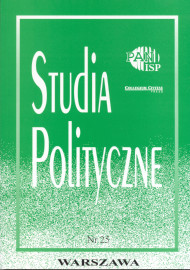Triumf i kryzys komunizmu – 1968
The triumph and crisis of communism – 1968
Author(s): Jerzy HolzerSubject(s): History
Published by: Instytut Studiów Politycznych PAN
Summary/Abstract: The article subjects the role performed by communist ideas in the events of 1968 to an analysis. The main thesis is an assertion that these events were not only the last episode of the fascination with Communism, which occurred in 20th century Europe, but also the apogeum of the communist ideas widely understood after the World War II. The author points to the diverse causes leading to the growing crisis of Communism, and not only in its Soviet form. They took a different form not only in particular Western countries, but also in West and East Europe. In the latter, everywhere except the GDR, they brought defeat to revisionism, while the events in Poland and in Czechoslovakia dealt a blow to the idea of reforming the Communist systems from within and introducing elements of democracy into them. The lack of faith in the communist ideas and of the possibility of reforming the Communism from within, which had previously been adhered to by Soviet dissidents, gradually became widespread across the entire Soviet block. From then on, the crisis of Communism in Eastern part of Europe developed until those systems collapsed.
Journal: Rocznik Polsko-Niemiecki / Deutsch-Polnisches Jahrbuch
- Issue Year: 2010
- Issue No: 18
- Page Range: 42-58
- Page Count: 17
- Language: Polish

